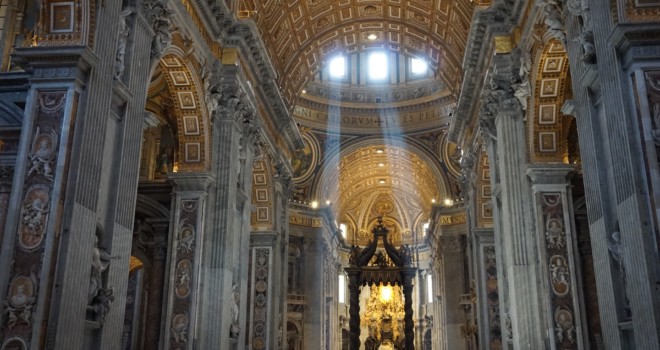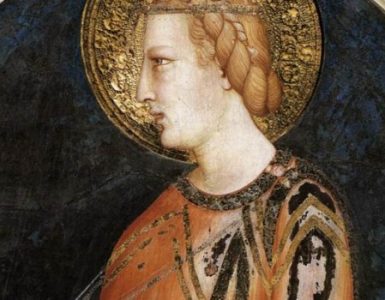I am a 35-year-old millennial that grew up in the “Post-Vatican II era.” I had always heard about the incredible and astonishing changes that resulted from the Second Vatican Council. As a pastoral musician, I have attended countless workshops that have highlighted some of the articles from documents like Sacrosanctum Concilium or Lumen Gentium. I have seen music director job postings that stated: “This is a Vatican II parish. Applicants must comply with the vision and the spirit of Vatican II.” So, what was the vision of the Second Vatican Council? Years ago, I thought, “You know what? I think I’ll read the documents!” So, I read them, cover-to-cover. And I was shocked by the material.
The contents of the documents are indeed incredible and astonishing. These beautiful articles were crafted with great splendor and truth. It felt as though I was reading an extended form of the Creed – what we believe as Catholics. The authors had taken great care to infuse Catholic truth in the areas of faith and modern science; the relationship of the Church and the modern State; the relationship between the Christian faith and the world religions. And perhaps the most shocking material to read was that of the Mass and its implementation.
Sacrosanctum Concilium showed me that “the regulation of the liturgy depends solely on the authority of the church and the local bishop” (Art. 1). “No one, even a priest, should add, remove or change anything in the liturgy on his or her own” (Art. 3). The document goes on to state that the Mass should be clean, uncomplicated and “radiate a rich simplicity” (Art. 34). The council emphasized the importance of retaining the language of Latin: “The use of the Latin language is to be maintained in the Latin rites” (Art. 36). This is not to exclude the vernacular language that had now been deemed permissible (at the discretion of the bishop): “There may well be a suitable place for the local language in masses celebrated with a congregation” (Art. 54). However, the next sentence specifies that the assembly should be able to “say or sing in Latin the parts of that Mass which are appropriately theirs” (Art. 54).
Musically, the “growth of choirs should be energetically fostered, especially in cathedral churches” (Art. 114). “Gregorian chant should be given place of primacy in liturgical activity” (Art. 116). “The pipe organ should be held in great honor” (Art. 120). With all due respect to composers who write hymns with music and lyrics by ___ composer, the council gives preference to “[hymn texts that] draw principally on scripture and on sources from within the liturgy” (Art. 121).
Regarding fundamental matters of faith, I had often heard slogans like, “because of Vatican II, you don’t even have to be a Catholic anymore. Just Christian.” Lumen Gentium elaborates on the importance of our Catholic identity stating, “this pilgrim church is necessary for salvation…Those cannot be saved who refuse to enter the church or remain in it, if they are aware that the Catholic Church was founded by God through Jesus Christ as a necessity for salvation” (Art. 14). This of course would not apply to anyone who, through no fault of their own, had never been revealed the truth about the Catholic Church or the Gospels (see Art. 16).
To walk with Christ in today’s world is the hardest thing I have ever done. Life choices relating to the moral life can often be challenging. When making decisions of morality, I have often heard, “follow your conscience” (as opposed to your formed conscience). As a father of five, it was encouraging to read about Vatican II’s views of family life, which is highlighted in Gaudium et Spes. The Church reminds married persons that their “special mission” is their mutual love, which should be “directed towards the begetting and bringing up of children” (Art. 50). While today it can be tempting to conform to society, married couples “should be aware that they cannot just do as they please” (Art. 50). Rather, they should “trust in divine providence and practice a spirit of sacrifice” (Art. 50). For those who have been entrusted by God to have larger families, it was a great consolation to read about the support from our Mother Church: “Special recognition should be accorded those who prudently and jointly decide with open hearts to have a large family which they will bring up in a suitable manner” (Art. 50).
After a complete reading of the documents, I was shocked to discover what was not included. For instance, why do many Catholics now receive Communion in the hand and not on the tongue? Why is there now an army of lay, extraordinary ministers distributing Holy Communion under ordinary circumstances? Why has the tabernacle been removed from so many sanctuaries? Why does no one seem to observe penitential Fridays anymore? The common answer is, “Vatican II changed that.” The documents nowhere mention Communion in the hand, lay ministers of Holy Communion, or tabernacle placement; yet these changes have become the unofficial norm of the west. With regards to abstaining on Fridays, every Friday remains a day of penance (Abstaining from meat can now be substituted with a different form of penance or act of charity. See Canon Law 1250-1253.)
Have these exclusions contributed to a significant drop in Mass attendance, Holy Orders, or the reverence of Christ’s true presence in the Eucharist? Many faithful priests and lay people are in difficult positions of trying to implement the true “spirit” of the council, while ministering within a western church that has slowly shifted toward modernity. I have witnessed colleagues who appear to make “traditional” (I prefer “authentic”) liturgical choices, and someone would always say, “They are trying to take the Church back to pre-Vatican II.” Well, I cannot speak to a pre-Vatican II era, but I can suggest that maybe it is time we take the Church back to the original Vatican II era.
I would encourage every Catholic to read the documents of the Second Vatican Council. Do so lovingly, with an open heart and mind. Upon reading them myself, a certain cross was lifted from my shoulders, and I could go forward with my Catholic faith trusting in the Church’s wisdom, and not my own. I could now conform to Him, and not to this world. I could now “be of good cheer, for [He had] overcome the world.” (John 16:33)
✠












